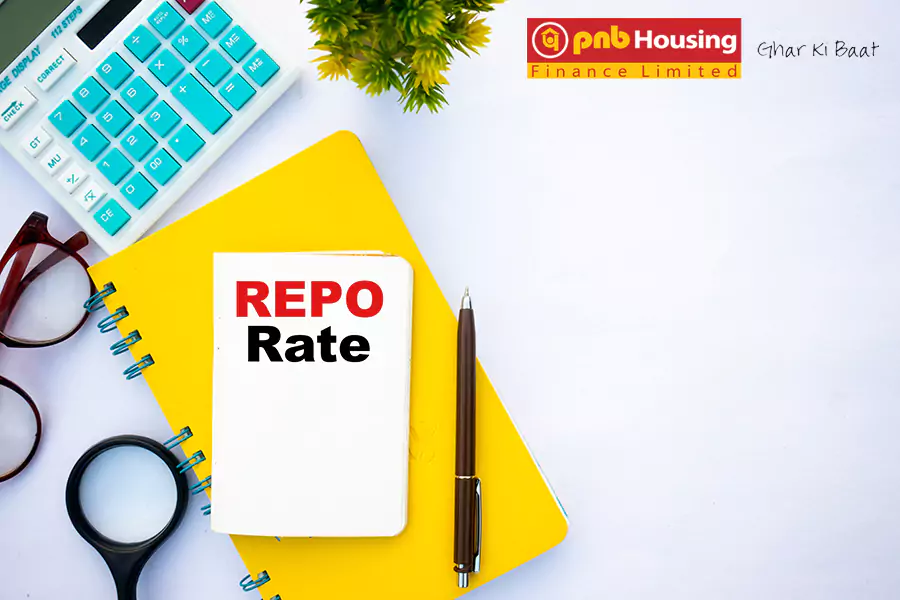Introduction
Investing funds in commercial property can be a game-changer for businesses and investors. Whether expanding your business, leasing office space or investing in retail outlets, commercial property loans give you the financial flexibility needed to achieve your goals.
These loans help business owners and investors acquire high-value commercial properties without exhausting their working capital. Understanding the right loan type and its benefits can help you make planned decisions and maximise your investment potential.
What is a Commercial Property Loan?
A commercial property loan is a type of financing designed to help businesses and investors purchase, develop, or renovate commercial real estate properties. Unlike residential loans, these loans are specifically tailored for properties used for business purposes, such as offices, warehouses, and retail spaces. These loans typically need higher down payments and come with stricter eligibility criteria compared to home loans.
For instance, Nareen, a software company proprietor in Coimbatore, expanded his office space by taking a commercial property loan from PNB Housing, allowing it to accommodate his growing workforce without disrupting cash flow.
Types of Commercial Property Loans
Commercial property loans come in various forms, catering to different needs. Here are some common types:
- Term Loans
- Purpose: Provide a lump sum of money to be repaid over a fixed period with regular installments.
- Example: A startup company wants to purchase its own office space to avoid paying rent. They secure a term loan to buy the property and repay the loan over a set number of years.
- Construction Loans
- Purpose: Finance the construction of new commercial properties or major renovations
- Example: A developer plans to build a new shopping mall. They obtain a construction loan to cover the costs of construction, paying interest only during the building phase and repaying the principal once the project is completed.
- Lease Rental Discounting (LRD)
- Purpose: Allow property owners to obtain loans based on the rental income they receive from tenants.
- Example: A mall owner receives regular rent from various shop owners. To fund further expansion, the owner uses this steady rental income as collateral to secure a loan.
- Commercial Mortgage Loans
- Purpose: Provide financing for purchasing existing commercial properties.
- Example: A business seeks to acquire an office building to expand its operations. They take a commercial mortgage loan, using the property itself as collateral.
- Working Capital Loans
- Purpose: Assist businesses in covering everyday operational expenses, ensuring smooth operations during cash flow shortages.
- Example: A retail store needs funds to stock up on inventory before the festive season. It obtains a working capital loan to purchase the necessary stock and plans to repay it as sales increase.
- Bridge Loans
- Purpose: Offer short-term financing to bridge the gap between immediate funding needs and long-term financing solutions.
- Example: A company finds a perfect new location but hasn't sold its current property yet. It secures a bridge loan to purchase the new property and plans to repay it once the old property is sold.
Understanding these loan types and their applications can help businesses make informed decisions about financing their commercial property needs.
Eligibility Requirements
Financial institutions have specific eligibility criteria for commercial property loans. Below are the key factors:
- Business Vintage: Minimum of 3 years in operation with consistent revenue.
- Credit Score: Preferably above 700 to ensure easy approval.
- Income Stability: Having a steady and reliable income that doesn't change much over time.
- Property Valuation: The loan value depends on the property's market value and potential returns. The customer must contribute at least 30% of the total property cost, including stamp duty and registration charges.
- Legal Clearances: Property should be free from legal issues or claims by others.
Application Process
Applying for a commercial property loan involves a systematic approach. Here's a step-by-step breakdown:
- Assess Requirements: Determine the loan amount, tenure, and purpose.
- Research Financial Institutions: Compare different financial institutions' interest rates, processing fees, and repayment terms.
- Prepare Documents: Submit business financials, property documents, KYC, and loan application forms.
- Loan Approval & Processing: Financial institutions evaluate financial stability, business history, and property value.
- Loan Disbursement: After verification, funds are transferred to complete the purchase or construction after verification.
Understanding Loan Terms and Conditions
Understanding the terms of commercial property loans ensures better financial planning. Key aspects include:
| Term | Explanation |
|---|---|
| Interest Rate | Fixed or floating rate applied on the loan amount |
| Loan-to-Value (LTV) | Percentage of property value funded by the financial institution (typically 60-70%) |
| Repayment Tenure | Loan period, typically 5-15 years, based on the financial institution’s policies |
| Prepayment Charges | Fees are imposed if the loan is paid off before the agreed tenure |
| Processing Fees | A one-time charge by the financial institution, ranging from 1-3% of the loan amount |
Benefits of Commercial Property Loans
Taking a commercial property loan offers multiple benefits:
- Capital Growth: Real estate appreciates over time, providing long-term gains.
- Stable Investment: Commercial properties generate steady rental income.
- Flexible Repayment: Different loan tenures ensure comfortable EMIs.
- Higher Loan Amounts: Large financing options compared to residential loans.
- Tax Benefits: Interest paid on commercial property loans is tax-deductible, reducing tax liability.
- Business Expansion: Funds can be used to scale business operations without using working capital.
- Ownership Benefits: Unlike leasing, loan-based ownership builds assets and enhances business credibility.
Risks and Challenges
While commercial property loans have benefits, they also present challenges:
- Higher Interest Rates: Compared to residential loans, commercial loans carry higher rates, increasing borrowing costs.
- Longer Approval Process: Due to property evaluations, credit assessments, and legal verifications, loan approval may take longer.
- Market Fluctuations: Commercial property values can vary, impacting investment returns.
- Loan Default Risks: Businesses with unstable cash flow may struggle with repayments, leading to financial strain.
Conclusion
Commercial property loans provide an excellent opportunity for businesses to expand, invest, and grow. Borrowers can make well-informed financial decisions by understanding the loan types, eligibility criteria, and benefits.
Commercial property investments can yield long-term financial security with proper planning and partnering with the right financial institution. Entrepreneurs and investors must assess their financial situation and property potential before applying to make the most out of their commercial real estate investment.
FAQs
How do commercial property loans differ from residential loans?
Commercial property loans are designed for business use, whereas residential loans are meant for personal housing. They have higher interest rates, stricter eligibility criteria, and shorter repayment tenures compared to home loans.
Are there any tax benefits associated with commercial property loans?
Yes, commercial property loans offer tax benefits in India. You can deduct the interest paid on the loan from your taxable income. Also, a standard deduction of 30% of the annual rental income is allowed for repairs and maintenance.
Can I use a commercial property loan to finance my own business premises?
Absolutely. Many business owners use commercial property loans to purchase office spaces, warehouses, or factories for their operations. Owning the property provides long-term stability and eliminates rising rental costs.
Is it worth buying commercial property on loan?
Yes, buying commercial property through loans can be a smart investment. It allows businesses to own valuable real estate, gain rental income, and benefit from property appreciation over time.























